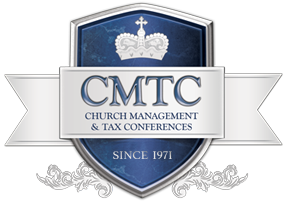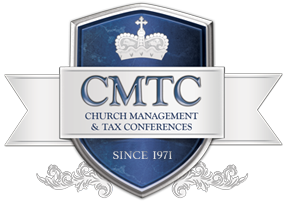For years he was the most trusted man in the Church other than the Pastor. He was a pillar of the community and the Church, so no one questioned when the Church voted him to be the new Church Bookkeeper. He seemed so honest that no one even cared or question the fact that he single-handedly counted the offerings each week in his home.
Mr. Jasper had a problem of which no one was aware – his opulent lifestyle far exceeded his monthly income. The temptation of all the cash, especially the money which did not have an accompanying offering envelope, was too much. Unfortunately, no one caught it until he took an extended leave of absence due to his daughter’s illness. The individual that handled the books in his absence noticed many purchases that were unrelated to Church business, including some luxury items that were paid for with Church funds.
The Church was devastated as some members began to choose sides – ironically some in his defense and others desiring retribution.
Why did it happen and was it avoidable?
Why Embezzlement Happens
In every case where we have been called to audit a non-client Church’s books and embezzlement had occurred, there were three underlying factors that provided a breeding ground for such behavior.
1. Poor Financial Controls
Many Churches across America, especially smaller congregations, engage in poor monetary and recording keeping practices. Most of them do not know Church law and are only concerned with collecting the offerings and paying the bills. The bookkeeper usually has no experience in manage financial affairs – especially those of the Church.
2. Fear of An Audit
As it is with those who attend our Church Management and Tax Conferences, they somehow fear that if anyone looks at their books other than the Pastor or Board Members it will lead to fraud investigations.
When Chitwood and Chitwood performs a compliance audit, anything we uncover we do so only to correct.
Other CPA’s usually discover less than 10% of embezzlement cases in a financial audit.
3. Churches Are Considered as Safe and Trusting Environments
When these three components are in place, embezzlement is not usually caught for years and most of that which is caught is by accident.
Members Responsibilities
Board Members who discover embezzlement are required to report it. If they do not the IRS could revoke the tax-exempt status of the Church and a fine of $20,000.00 per Board Member could be assessed if the problem is not corrected.
Most Churches do not report embezzlement for a couple of reasons. 1) They want to handle everything “in house” and offer forgiveness and reconciliation. This may be great and Biblical, but a Church must also obey the laws of the land. 2) Many Board Members are concerned that they will get in trouble if law-enforcement is notified. Board Members should be aware that they will be free from personal liability if they act in good faith.
Board Members should take necessary steps to ensure that financial accountability is in place for anyone who works handles, counts or deposits the tithes and offerings.
Rules for Counting Tithes and Offerings
1. Have a written counting policy
When it is in printed form it leaves little room for questionable practices and it provides continuity for all who participate – i.e. everyone is on the same page.
2. Have at least three unrelated people counting the money at all times
Never allow only one person to count the money during the worship service or off of the premises. Have more than one team of three, or several substitutes who can assist with the count as needed.
3. Provide a safe, secure counting environment
When possible, have armed security personnel stand outside the counting room to keep people from entering until the count is complete and the funds are secure. Those who feel that armed security is unwarranted should remember that for many Churches, Sunday Morning Worship Service is a robber’s dream world – lots of money and little or no security.
4. All counting should be completed the same day the tithes and offerings are collected
5. Use a count sheet
Record all the tithes and offerings on the form; ensure that it balances with the envelopes; and then each counter should sign the form to verify its accuracy. A copy of the count sheet should be given to the Treasurer (unless he or she was involved in the count).
6. After money is counted it should be secured
If the Church does not have a safe or vault on site, make sure the money is contained in a secure location until it can be deposited into the bank’s night/weekend depository.
7. Deposit the money during the bank’s next business day
In Closing
Learn these practices and many more to help your Pastor and Church become and remain legally compliant. Chitwood and Chitwood has been helping Churches stay compliant for more than 77 years. Our dedicated staff strives to ensure that every Church who retains our services will be able to focus on their mission as a Church rather than being overloaded with financial and administrative issues.
Contact us at drshaw@cmtc.org or attend a Church Management and Tax Conference near you by registering at www.cmtc.org. No one does it better than we do. We are number one in our field.

